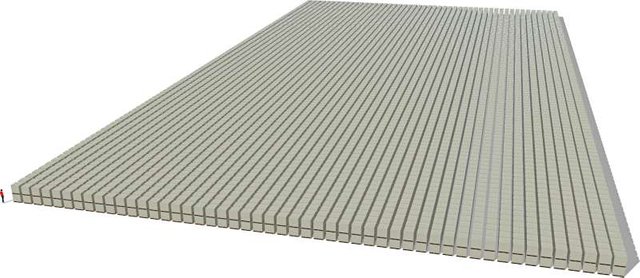A simple way to actually comprehend big numbers
There is news about Internet of Things being a 19 trillion dollar market, that the we consume 100 PWh in total and that there are billions of cars on the roads. Billion, trillion, quintillion - not only don't they convey any visual meaning or actual feeling, but they are also confusing because they can be different amounts in different countries. For example, 10^12 is a trillion in the US but a billion in Sweden. Apparently, this naming system is not perfect, because in a perfect system, a rose by any other name would smell as sweet :)
So, let's try to fix this, let's visualize the amount of cars or oil barrels or whatever using zeros:
1000000000
1000000000000
1000000000000000000
Hm. I have still trouble feeling their magnitude, have you?
Trick 1 - use logarithms
log_10(1000000000) = 9
log_10(1000000000000) = 12
log_10(1000000000000000000) = 18
Can you feel that 12 is 3x bigger than 9? And that 18 is 6x bigger than 12? When you convert big numbers to small numbers that you deal with every day, it's much easier to appreciate them.
People are actually good at understanding logarithms. You've probably cranked up the volume on your sound system - the Bell scale (dB) is logarithmic. Or you have perhaps felt an earthquake - the Richter scale is also logarithmic.
Trick 2 - per capita
How big a share do you get from that 19 trillion dollar market? There are roughly 10 billion people in the world, so your share becomes 1900 dollars. You can also divide this by 365.25 to get roughly $5 per day. That's how much everyone in the world have to spend per day. ~60% of the population live on less than $5 per day and can't even dream about spending so much.
Trick 3 - think in pallets!
There is a nice view here of how many pallets you need if you'd have 1 trillion dollars in cash. Mind-boggling.

Figure 1. This is 1 trillion dollars with $100 bills.
If you have more tricks up your sleeves, please share, I'd be happy to know!